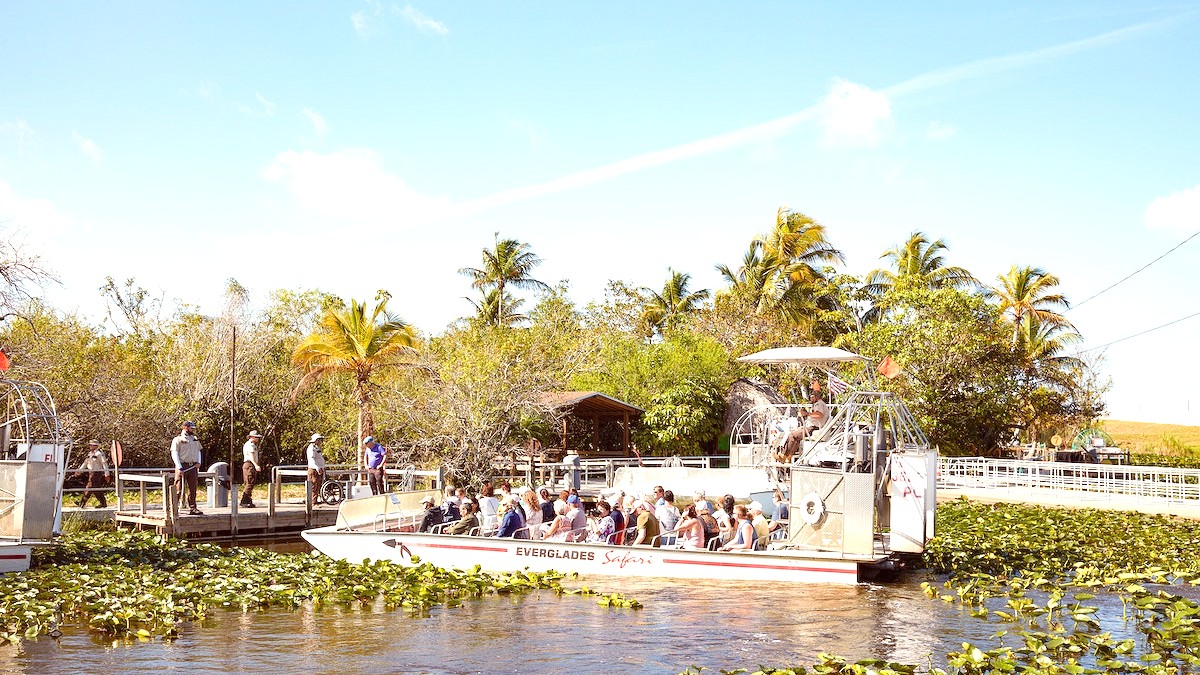
Florida, USA
Orlando features state parks (Wekiwa Springs, Tibet-Butler Preserve) protecting wetlands, springs, and scrub habitats. These areas safeguard manatees, alligators, and bird species. Major theme parks maintain their own conservation programs.
Recycling operates in Orlando with blue bins for mixed recyclables (plastic, glass, paper, metal). Find recycling bins in hotels, public areas, and theme parks. Waste not recycled goes to landfills.
Florida's fresh water relies on the Floridan Aquifer. Water conservation matters, especially during dry periods. Resorts implement water-saving measures. Support these by being mindful of your own water consumption. Shorter showers and towel reuse make a difference.
Your travel decisions have an environmental footprint. Make choices that support sustainability.
Travelers purchase carbon offsets for flights. These offsets support projects that reduce greenhouse gas emissions elsewhere, helping to mitigate travel's environmental impact.
Look for hotels with environmental certifications or those visibly implementing sustainability practices (e.g., energy efficiency, waste reduction).
Orlando works to preserve its historical sites and cultural heritage. This includes maintaining historic districts downtown and recognizing Eatonville's unique history.
Be polite and patient, especially in crowded tourist areas. A simple "please" and "thank you" makes a difference.
Seek out independent restaurants, local shops, and smaller operators. This channels tourist dollars into the local economy.
Look for fair trade or locally made souvenirs. Be wary of attractions exploiting people or animals.
Explore conservation effortsConscious choices significantly contribute to the well-being of Orlando's environment and communities. Your actions make a tangible difference.
Your travel choices directly impact the local economy and culture. Support practices that foster positive contributions.
Formal community-based tourism where tourists directly benefit local communities are less structured in Orlando's main tourist zones. However, supporting local businesses outside major corporate parks directly helps.
When buying souvenirs, look for fair trade products or items made by local artisans. This confirms fair compensation and ethical sourcing.
Be cautious of attractions or interactions that appear exploitative of people or animals. Research any animal encounter experiences thoroughly.
If you wish to make a charitable contribution, research local charities focusing on environmental conservation, social services, or education.
Every decision, from where you eat to what tours you book, reflects your commitment to responsible travel.
Opt for businesses that demonstrate environmental care.
Actively seek ways to support local communities.
Purchase goods that align with fair trade principles.
Being a responsible traveler means making mindful choices that benefit the destination's environment, culture, and economy.
Florida's natural habitats are delicate. Stick to marked trails in parks and preserves. Do not disturb wildlife or their habitats. Dispose of waste properly in designated bins.
Be courteous and patient with locals and fellow travelers. Respect private property and residential areas. Maintain appropriate noise levels, notably during quiet hours.
Theme parks and attractions have specific rules for guest safety and operational efficiency. Familiarize yourself with these guidelines before your visit.
Always be aware of your surroundings. Safeguard your personal belongings. Stay hydrated, especially during warmer months. Use sunscreen and wear appropriate clothing for the weather.
In an emergency, dial 911 for police, fire, or medical assistance. Be aware of severe weather alerts, especially during hurricane season (June 1 - November 30).
Call 911 for immediate help.
Monitor local weather forecasts, especially for storms.
Understand hotel emergency procedures.
Staying informed about potential weather conditions is specifically important.
A positive visitor experience for all arises from shared responsibility. Your adherence to these guidelines helps maintain Orlando's welcoming and atmosphere.